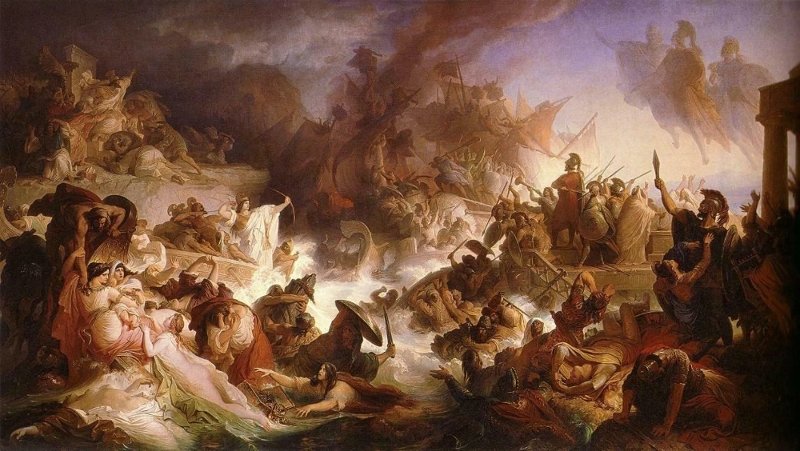Many battles in history have resulted in unexpected results due to the intervention of the weather.
War of 1812 between the United States and the British Empire
According to The Epoch Times, on August 25, 1814, when the White House and public buildings were set on fire by the British, the sky turned black and torrential rains fell to extinguish the blaze. The most destructive storm to sweep Washington D.C. and kill more British soldiers than any American-fired gun, according to the US National Weather Service.
The tornadoes scared the British to retreat, but the storm also destroyed the city, especially residential areas. It was an unusual weather event in Washington D.C. Since then, 7 tornadoes have hit the city, but this is the only one causing death.
The British battle against the Spanish invaders
King Philip II of Spain attempted to conquer England in the 16th century. Exceptionally strong storms dealt the final blow to the Spanish fleet. These storms were later called “good winds” indicating that God favored Protestant English over Spanish Catholics in combat.
The Spaniards were unprepared for the mighty British army, so storms were not the only determining factor in the outcome of the battle. But along with other factors, they helped prevent the Spaniards from invading England.
Persian conspiracy to conquer Greece
In 492 BC, Greece was almost overwhelmed by the powerful Persian army led by General Mardonius. But as the Persians sailed near Athos, a storm destroyed 300 ships, killing 20,000 soldiers, according to historian Herodotus.

This event did not make Persia renounce its intention to invade Greece, the storm only prevented an attack. But this battle was perhaps the only chance of success for the Persians because in the following battles, the Greeks successively won.
From the perspective of the ancient Greeks, the storm was either called by the sea god Poseidon to protect them, or the Persians were too arrogant to be punished by the gods. The sea in this region is famous for its strong storms. However, the timing of this particular storm was very fortuitous as if it had been pre-arranged.
Mongolian invasion of Japan
Research by American scientists published on February 11, 2014 in the Proceedings of the Academy of Sciences shows that the weather has always favored the invasion of the Mongol emperor.
Genghis Khan’s expansion coincided with 15 years of the wettest and warmest weather in more than 1,100 years of history. Previous dry spells may have prompted the invasions. The period of high humidity produced fertile pastures, perfect for raising horses and thus strengthening the Mongols.
However, the weather was unfavorable for Genghis Khan’s grandson, Kublai Khan, when he attempted to invade Japan on October 29, 1274. “If it hadn’t been for two major typhoons, Japan would be part of China today, “said Kerry Emanuel, professor of meteorology at the Massachusetts Institute of Technology (MIT) in the United States.
According to Emanuel, with few troops and sketchy weapons, the Japanese quickly found themselves stranded inland. But as night fell, Korean navigators on the Mongolian ship sensed a storm approaching. Before that, the Japanese had hoped to delay the wait for reinforcements, but instead, a sudden storm destroyed most of the Mongols, killing 13,000 people and completely wiping out their intentions in the Japanese invading village of Kublai Khan.


